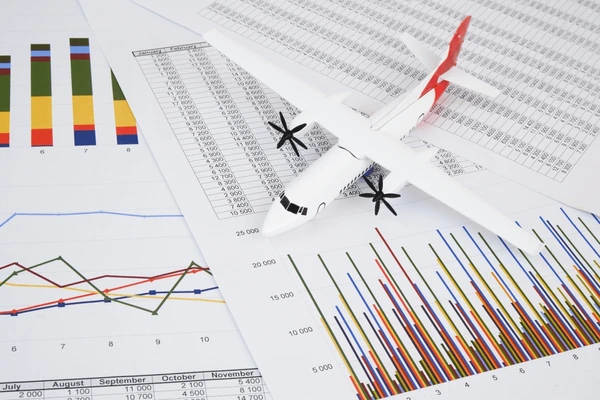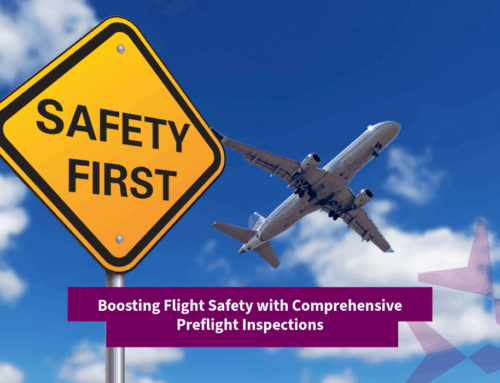Crisis Management in Aviation: How Flight Support Services Can Help
The aviation industry is inherently complex and dynamic, where crises can arise unexpectedly due to weather disruptions, technical failures, geopolitical tensions, or natural disasters. Effective crisis management is essential to ensure passenger safety, minimize operational disruptions, and maintain the industry’s reputation. Flight support services play a pivotal role in mitigating such challenges by offering expertise, resources, and real-time solutions tailored to managing crises.
Understanding the Nature of Crises in Aviation
Crises in aviation can take many forms, often with widespread impacts:
- Weather Events: Severe storms, hurricanes, or volcanic eruptions can lead to cancellations, delays, and rerouting.
- Technical Failures: Aircraft malfunctions or communication system outages require immediate attention to prevent escalation.
- Geopolitical Instability: Airspace closures, sanctions, or sudden regulatory changes can disrupt international operations.
- Natural Disasters: Earthquakes, floods, and other disasters can affect airport infrastructure and surrounding areas.
- Pandemics or Health Emergencies: Events like COVID-19 highlight the need for rapid adjustments in regulations and operations.
How Flight Support Services Assist in Crisis Management
Flight support services act as a backbone for operational stability during crises, offering expertise and resources to resolve challenges effectively.
1. Real-Time Communication and Coordination
- 24/7 Operational Support: Flight support providers maintain round-the-clock communication to address sudden crises promptly.
- Centralized Information: They provide up-to-date information on airspace restrictions, airport conditions, and weather changes to facilitate decision-making.
- Coordination with Authorities: Providers liaise with aviation authorities, air traffic control, and airport management to ensure compliance with emergency protocols.
2. Efficient Flight Planning and Rerouting
- Alternative Route Planning: When airspace closures or weather disruptions occur, flight support teams rapidly design safe and efficient alternate routes.
- Fuel Optimization: Adjusting routes to account for increased fuel needs during extended flight times ensures operational efficiency.
- Dynamic Risk Assessment: Providers assess airspace risks and guide operators to avoid high-risk areas.
3. Ground Handling and Logistics
- Resource Allocation: During crises, ground handling teams prioritize resources like de-icing equipment, emergency medical services, or rapid refueling.
- Passenger Support: Services include rebooking passengers, arranging accommodations, or facilitating visa processes in case of diversions.
- Cargo Management: Ensuring the safe and timely handling of perishable or high-priority cargo during disruptions.
4. Permits and Regulatory Compliance
- Rapid Permit Approvals: During emergencies, securing overflight or landing permits quickly can be critical. Flight support providers have established networks to expedite approvals.
- Regulatory Guidance: Providers ensure compliance with evolving regulations, such as health protocols during pandemics or restrictions in conflict zones.
5. Crisis-Specific Support Solutions
- Evacuation Operations: Flight support services play a critical role in planning and executing evacuation flights from disaster-hit regions.
- Emergency Medical Flights: Coordinating air ambulance services with medical teams and hospitals for time-sensitive cases.
- Aircraft Recovery: In case of technical failures or accidents, providers assist in deploying maintenance teams or towing services.
Case Studies of Crisis Management Success
1. Managing Weather Disruptions
During a hurricane in the Caribbean, a flight support provider successfully rerouted multiple flights through alternate airports, ensured timely refueling, and coordinated with local authorities to accommodate stranded passengers.
2. Navigating Airspace Restrictions
Amid geopolitical tensions, a flight support team worked swiftly to secure overflight permits through neighboring airspaces, avoiding delays for a commercial airline operating in the region.
3. Supporting Pandemic Operations
During COVID-19, flight support services facilitated the repatriation of stranded passengers, coordinated cargo flights for critical medical supplies, and ensured adherence to rapidly changing health regulations.
The Importance of Preparedness and Partnerships
In aviation, proactive crisis management hinges on preparedness and strong partnerships:
- Crisis Response Protocols: Airlines and operators should collaborate with flight support providers to establish predefined protocols for emergencies.
- Training and Simulations: Regular drills with flight support teams can ensure readiness for various scenarios.
- Technological Investments: Leveraging advanced tools for real-time tracking, weather forecasting, and risk assessment enhances response efficiency.







